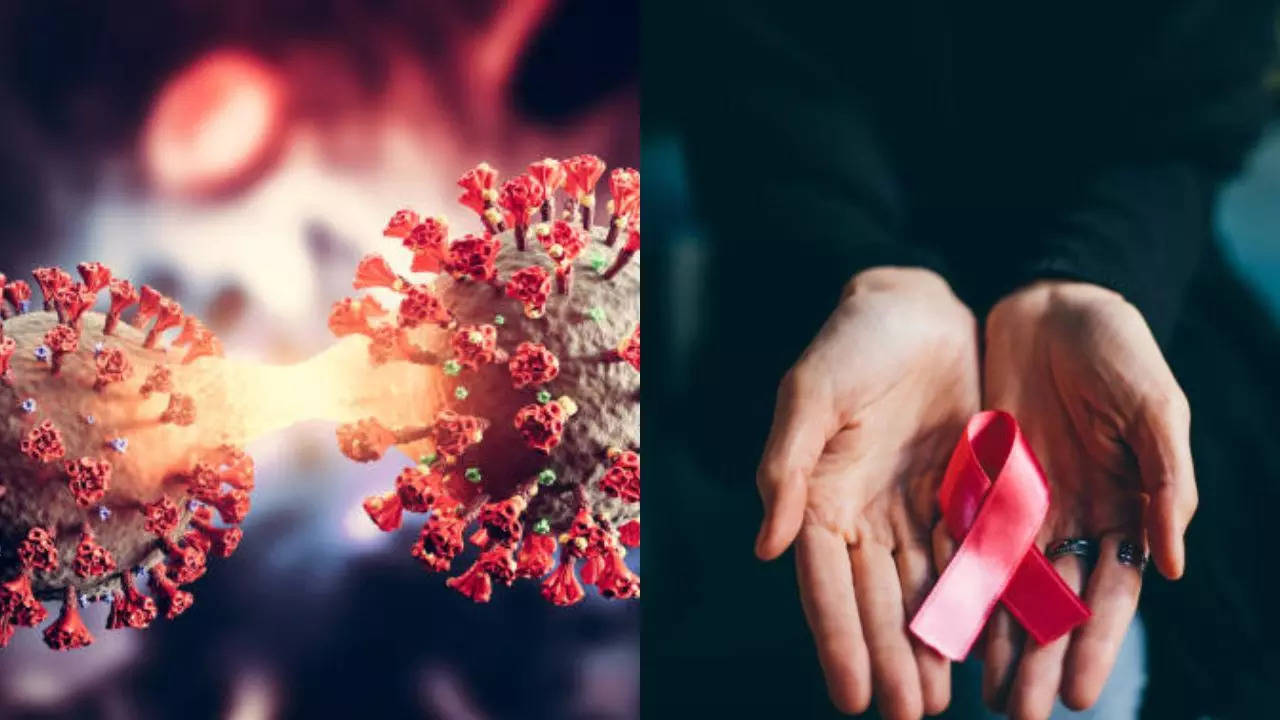
In a breakthrough discovery, scientists have discovered an unbelievable link between COVID-19 infection and cancer regression – where tumours significantly decrease in size or extent. Researchers from Illinois used animal and human tissues to observe that the RNA molecules of the SARS-CoV-2 virus - responsible for the disease, triggered the development of a special cell in the immune system that has anti-cancer properties. Also known as inducible nonclassical monocytes or I-NCMs - these special cells attack cancer cells and can be used for treating cancers that are resistant to current therapies.
Researchers from Northwestern Medicine Canning Thoracic Institute – which made the discovery, say the current studies may open avenues for more research on cancer. “This discovery opens up a new avenue for cancer treatment,” said Dr. Ankit Bharat, the Canning Thoracic Institute’s chief of thoracic surgery.
“We found that the same cells activated by severe COVID-19 could be induced with a drug to fight cancer, and we specifically saw a response with melanoma, lung, breast, and colon cancer in the study,” he added. As of now, effectiveness is only found in animals The study, published in The Journal of Clinical Investigation, is still in its early stages, with effectiveness as of now found only in animals. It, however, “offers hope that we might be able to use this approach to benefit patients with advanced cancers that have not responded to other treatments,” said Dr.
Bharat. According to the scientists, the special cells could be further developed using small molecules, which can then create a new path for cancer patients who have exhausted traditional treatment methods. “What makes these cells so special is their dual capability,” Dr.
Bharat said. “Typically, immune cells called non-classical monocytes patrol blood vessels, looking for threats. But they can’t enter the tumor site itself due to the lack of specific receptors,” he added.
Severe COVID-19 can kill tumours Scientists say cells created during severe COVID-19 retains a unique receptor known as CCR2 – which allows them to travel beyond blood vessels and infiltrate the tumour environment. Once they enter the tumour, these cells begin to release certain chemicals that may recruit your body’s natural killer cells. These cells then swarm the tumour and begin to attack the cancer cells directly – thereby helping to shrink the tumour.
According to Dr. Bharat, further research is to be done before the findings of this study can be used in clinical settings and is likely years away. The next step would be clinical trials.
Cancer is a disease in which some of the body’s cells grow uncontrollably and spread to other parts of the body. Some types of cancer have better survivability than others. Since the beginning of this year, an estimated 611,720 people are expected to lose their battle against cancer in the US.
According to statistics, lung cancer is responsible for a majority of those deaths. Get Latest News Live on Times Now along with Breaking News and Top Headlines from Health and around the world..














